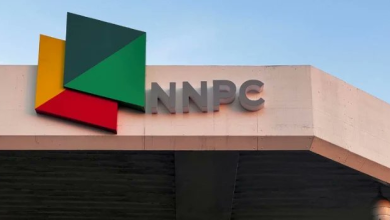Gombe Gets N60 Billion for Agro-Livestock Industrial Zone
Gombe secures ₦60 billion to launch a massive agro-livestock zone, targeting jobs and exports.
The project aims to modernize meat processing and boost economic growth across Northern Nigeria.
The Gombe State Government has received a substantial financial boost of ₦60 billion from the Federal Government to kickstart the development of a 184-hectare agro-livestock industrial zone, in what has been described as a landmark investment in Nigeria’s livestock economy.
Governor Muhammadu Inuwa Yahaya announced the groundbreaking ceremony held in Gombe on Saturday, hailing the initiative as a transformative step toward positioning Gombe as a key player in animal agriculture and agro-processing in Northern Nigeria.
According to Yahaya, the ₦60 billion represents the first tranche of a ₦120 billion livestock development support package pledged by President Bola Tinubu’s administration. He expressed deep appreciation for the federal government’s support, describing the intervention as timely and aligned with national priorities on food security and economic diversification.
“The Agro-Livestock Industrial Zone will modernise our meat and animal product processing, boost economic activity, and create thousands of direct and indirect jobs,” the governor said. “This is more than just a project; it’s a game-changer for Gombe’s agricultural future.”
What the project entails
The upcoming industrial zone will host several state-of-the-art facilities, including
- An ultramodern abattoir
- A tannery and leather processing plant
- A world-class livestock feed and grains market
- Fattening centres for cattle and small ruminants
- An international livestock trading hub
- And a fully operational inland dry port to facilitate exports
Governor Yahaya stated that the ultramodern abattoir will meet international standards for hygiene, automation, and meat packaging, serving both domestic consumers and export markets.
“This facility will drastically reduce the risks and economic losses associated with transporting live animals across long distances. It will also encourage value addition through modern processing, which benefits farmers, butchers, retailers, and exporters,” he added.
The governor also hinted at the project’s long-term impact, noting that the zone will strengthen the region’s livestock value chain from production to global market access.
Federal support and national vision
Speaking at the event, the Minister of Livestock Development, Alhaji Idi Maiha, affirmed the Federal Government’s commitment to revitalizing Nigeria’s livestock industry. He explained that the Gombe project is one of several major initiatives under President Tinubu’s broader agricultural reform agenda.
“This industrial zone is in line with the national blueprint to enhance local animal processing capacity, reduce dependency on imports, and ensure food security,” Maiha stated.
He disclosed that once fully operational, the abattoir will have the capacity to process 500 bulls, 1,000 small ruminants, and 3,000 poultry birds daily, figures that highlight the scale of the project and its potential to transform Nigeria’s meat industry.
Street lighting and infrastructure upgrade
In a related development, the Gombe State Executive Council has approved ₦1.15 billion for solar-powered street lighting and critical infrastructure development across three local government areas. The move is aimed at enhancing security, boosting economic activity, and improving living conditions in the affected communities.
While full details of the targeted LGAs were not disclosed during the council meeting, the administration said the funds would be used to install solar streetlights, rehabilitate rural roads, and support infrastructural development in underserved areas.
Strategic leap toward economic diversification
With these twin projects, the agro-livestock industrial zone and the infrastructure upgrade, the Yahaya-led government is making a bold move to shift Gombe’s economic focus from public-sector dependency to private-sector-driven growth through agribusiness and industrialization.
Analysts see the development as part of a broader wave of subnational innovation in Nigeria, where state governments are leveraging federal support and local resources to unlock economic opportunities and improve livelihoods.
As Gombe takes the lead in livestock transformation, all eyes will be on how efficiently the funds are utilized and how quickly the industrial zone can become operational, delivering the promised benefits to farmers, traders, investors, and the general populace.



